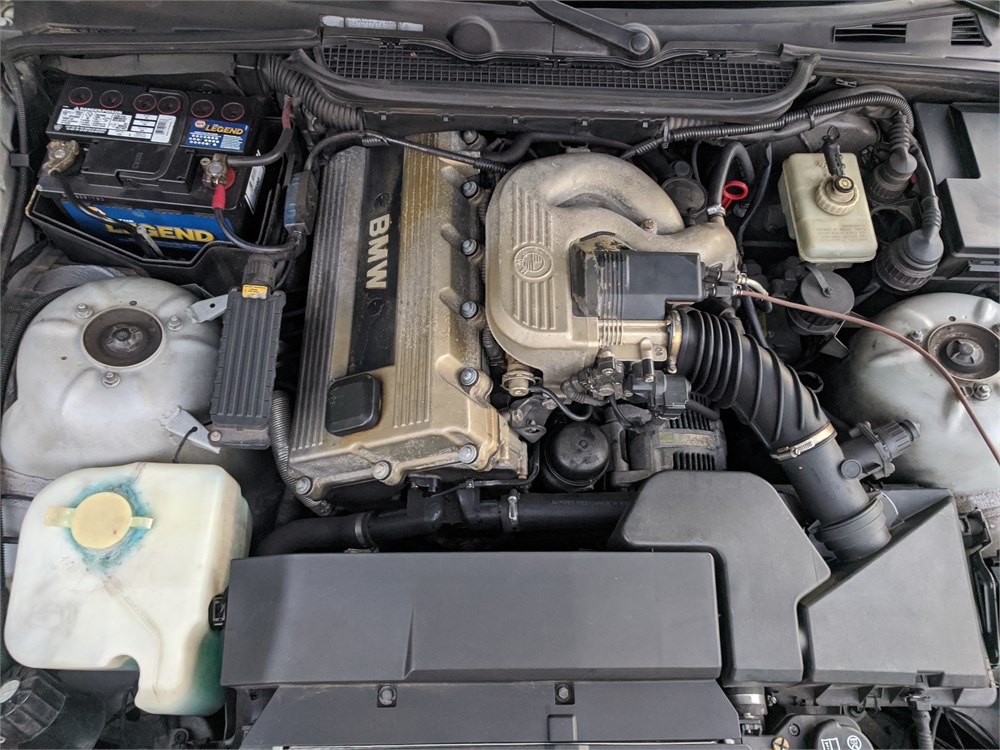The BMW 318ti: A Blend of Design, Comfort, and Efficiency
The BMW 318ti: A Blend of Design, Comfort, and Efficiency
Blog Article
Trick Attributes to Seek When Investing In an Engine for Automotive Applications
When thinking about the acquisition of an engine for auto applications, a number of vital functions call for careful evaluation to ensure optimal efficiency and functionality. From power and performance capabilities to fuel adherence, effectiveness, and resilience to discharges criteria, each element plays a crucial function in identifying the engine's viability for particular auto requirements.
Power and Efficiency
When choosing a vehicle engine, buyers prioritize power and efficiency to make certain ideal driving experience and performance. The power result of an engine, usually measured in horsepower (HP) or kilowatts (kW), dictates the velocity, top rate, and general capabilities of a vehicle. Higher power rankings generally result in quicker acceleration and far better performance, particularly throughout surpassing or bring hefty tons. Efficiency, on the other hand, encompasses a broader range of features, including gas performance, discharges, integrity, and general driving characteristics. A well-performing engine not just delivers power efficiently yet likewise operates smoothly across different rate varieties and driving conditions.
Furthermore, factors such as engine turbocharging, variation, and hybrid technologies play considerable functions in improving both power and efficiency degrees. Eventually, selecting an engine that provides a potent combination of power and efficiency makes certain a reliable and rewarding driving experience.
Fuel Efficiency
Enhancing gas effectiveness is a paramount consideration for consumers when reviewing automotive engine choices. Modern engines with functions like direct gas injection, turbocharging, and variable shutoff timing can considerably boost fuel effectiveness by enhancing combustion procedures and decreasing power loss.

Resilience and Integrity
Accomplishing long-lasting performance and reliable operation is vital for customers reviewing the durability and reliability of automotive engines. When thinking about an engine for automotive applications, toughness refers to the engine's ability to endure wear, stress and anxiety, and extreme operating conditions over an extended duration. Dependability, on the various other hand, implies that the engine can continually execute its desired function without unanticipated malfunctions or failings.
Customers need to look for engines created with high-grade materials and accurate design to ensure long life. Parts such as pistons, bearings, and crankshafts should be durable to manage the engine's power output without early wear. In addition, engines furnished with innovative cooling systems, effective lubrication, and robust purification devices often tend to display higher degrees of reliability.
Regular maintenance and adherence to producer recommendations are additionally essential consider maintaining an engine's durability and dependability. By adhering to upkeep routines, making use of advised fluids, and resolving any concerns without delay, customers can optimize the life-span and efficiency of their auto engines. Ultimately, focusing on longevity and dependability in engine selection can cause a much more rewarding possession experience with fewer unexpected interruptions.
Discharges Compliance
Making certain compliance with discharges guidelines is a critical element of examining vehicle engines for ecologically conscious customers. With raising concerns regarding air quality and environmental impact, stringent discharges requirements have been established worldwide to lower harmful toxins launched right into the environment. When acquiring an engine for vehicle applications, it is important to consider its exhausts compliance to minimize the carbon footprint and stick to legal demands.
Modern engines are outfitted with sophisticated exhaust control technologies such as catalytic converters, exhaust gas recirculation (EGR) systems, and careful catalytic decrease (SCR) to decrease damaging exhaust gases like nitrogen oxides (NOx), carbon monoxide gas (CO), and hydrocarbons (HC) These systems play an important function in making sure that the engine fulfills the defined discharges criteria and runs within acceptable restrictions.

Cost-effectiveness
When thinking about automobile engine purchases, evaluating cost-effectiveness is vital for consumers seeking both performance and value. It encompasses the total expenses related to maintenance, fuel consumption, and potential repair work over the engine's lifespan.
Engines that are designed to maximize gas economic climate can lead to substantial savings over time, especially for individuals who drive frequently or over lengthy distances. bmw 318ti. Furthermore, taking into consideration the schedule and affordability of extra parts and maintenance can add to the general cost-effectiveness of an engine.

Final Thought
Finally, when buying an engine for automotive applications, it is vital to take into consideration essential attributes such as power and performance, gas performance, integrity and toughness, discharges compliance, and cost-effectiveness. These factors are necessary in making certain that the engine satisfies the demands of the vehicle and runs effectively in various driving conditions - bmw 318ti. Making a notified choice based upon these requirements will eventually lead to a successful and reliable automotive engine acquisition
From power and performance capacities to fuel durability, performance, and adherence to discharges standards, each facet plays a crucial role in establishing the engine's suitability for particular automotive needs. Engines developed to run on different fuels such as electric power, crossbreed systems, or biofuels can supply better gas economic situation and reduced emissions contrasted to traditional gasoline or diesel engines. Customers need to thoroughly take into consideration see this site the gas efficiency ratings and modern technologies included right into automotive engines to make educated buying choices that align with their top priorities for price savings and sustainability.
When thinking about an engine for automotive applications, toughness refers to the engine's ability to withstand wear, stress and anxiety, and extreme operating conditions over an extended duration.In straight from the source verdict, when buying an engine for automobile applications, it is crucial to consider vital functions such as power and performance, fuel sturdiness, effectiveness and reliability, emissions compliance, and cost-effectiveness.
Report this page